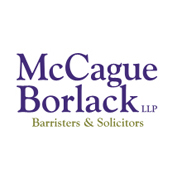AIG acknowledged its obligation to defend the action on behalf of the City but claimed that Lloyd's had a concurrent duty to defend and must pay an equitable share of the City's defence costs. AIG also claimed it had a right to participate in the City's defence, including the right to retain and instruct counsel, alongside Lloyd's.
The City and AIG brought competing applications to determine which insurers had a duty to defend the action. AIG appealed the application judge's decision that it must defend the action on behalf of the City, pay the cost of defending the action on behalf of the City and collect any indemnification costs from Lloyd's upon final conclusion of the action, and may not participate in the defence with separate counsel.
The issues on appeal were whether
- Lloyd's owes the City a concurrent duty to defend,
- Lloyd's must pay an equitable share of the City's defence costs, and
- AIG has the right to participate in the defence, including the right to retain and instruct counsel.
As to the first issue, there was no dispute that AIG is a primary insurer. However, AIG argued that Lloyd's is also a primary insurer and not an excess insurer, as was argued by the City. The Court of Appeal concluded that because the AIG policy contains no excess provision, AIG is the primary insurer for bodily injury or property damage claims arising from the operations of Hockey Canada and the Waxers up to its $5 million policy limit. Moreover, to the extent that the AIG and Lloyd's policies cover the same claims, AIG must defend up to its policy limits, and Lloyd's maybe an excess insurer. However, Lloyd's must still defend the City against claims that fall outside the scope of the AIG policy and within the scope of its own policy.
As to the second issue, the Court of Appeal concluded that since there was no contract between the two insurers with respect to the defence, the most equitable allocation of the City's defence costs would be to require AIG and Lloyd's to each pay an equal share of the City's defence costs and to adjust the costs as between them after final disposition of the action.
... each insurer alleged various conflicts of interest with respect to the other's handling of the City's defence. |
As to the third issue, both insurers' policies provided that they have a duty and right to defend the action. However, due to the discrepancies in coverage between the two policies of insurance, each insurer alleged various conflicts of interest with respect to the other's handling of the City's defence. The Court of Appeal found that AIG has an interest in having liability determined on the basis of the City's actions alone so that it is not responsible for any damages. The Court likewise found that Lloyd's and the City have an interest in having liability determined on the basis of the operations of Hockey Canada or the Waxers and not from the actions of the City, so as to minimize their own damages exposure and guard against raising the City's premiums.
The Court of Appeal, therefore, concluded that both AIG and Lloyd's owe a duty to defend the City in the action, AIG and Lloyd's must share the City's defence costs equally, subject to a right to seek a reallocation of the defence costs at the conclusion of the action, and AIG has a right to participate in the defence, including the right to retain and instruct counsel.
The Court agreed with AIG's suggestion that it implements a "split file" system to sequester personnel handling the defence of the City from those handling the defence of Hockey Canada and the Waxers. The Court concluded this would ensure that the potentially conflicting interests insured by the AIG policy are handled separately both internally and by separate counsel. However, the Court also instructed that
- the terms of this arrangement must be provided in writing to those involved in managing the defence,
- counsel appointed by AIG must fully and promptly inform the City and Lloyd's of all steps taken in the defence of the litigation against the City such that each would be in a position to monitor the defence effectively and address any concerns,
- defence counsel must have no discussion about the case with either coverage counsel, and
- counsel for the City must provide identical and concurrent reports to the City and both insurers regarding the defence of the main action.
Read the full decision.
*Update as of December 2020
Leave to appeal in the City of Markham, et al. v. AIG insurance2 to the Supreme Court of Canada was denied on December 3, 2020. Therefore, the decision of the Ontario Court of Appeal stands.
Read the full decision.
- Markham (City) v. AIG Insurance Company of Canada, 2020 ONCA 239.
- Corporation of the City of Markham, et al. v. AIG Insurance Company of Canada, 2020 CanLII 94500 (SCC).


